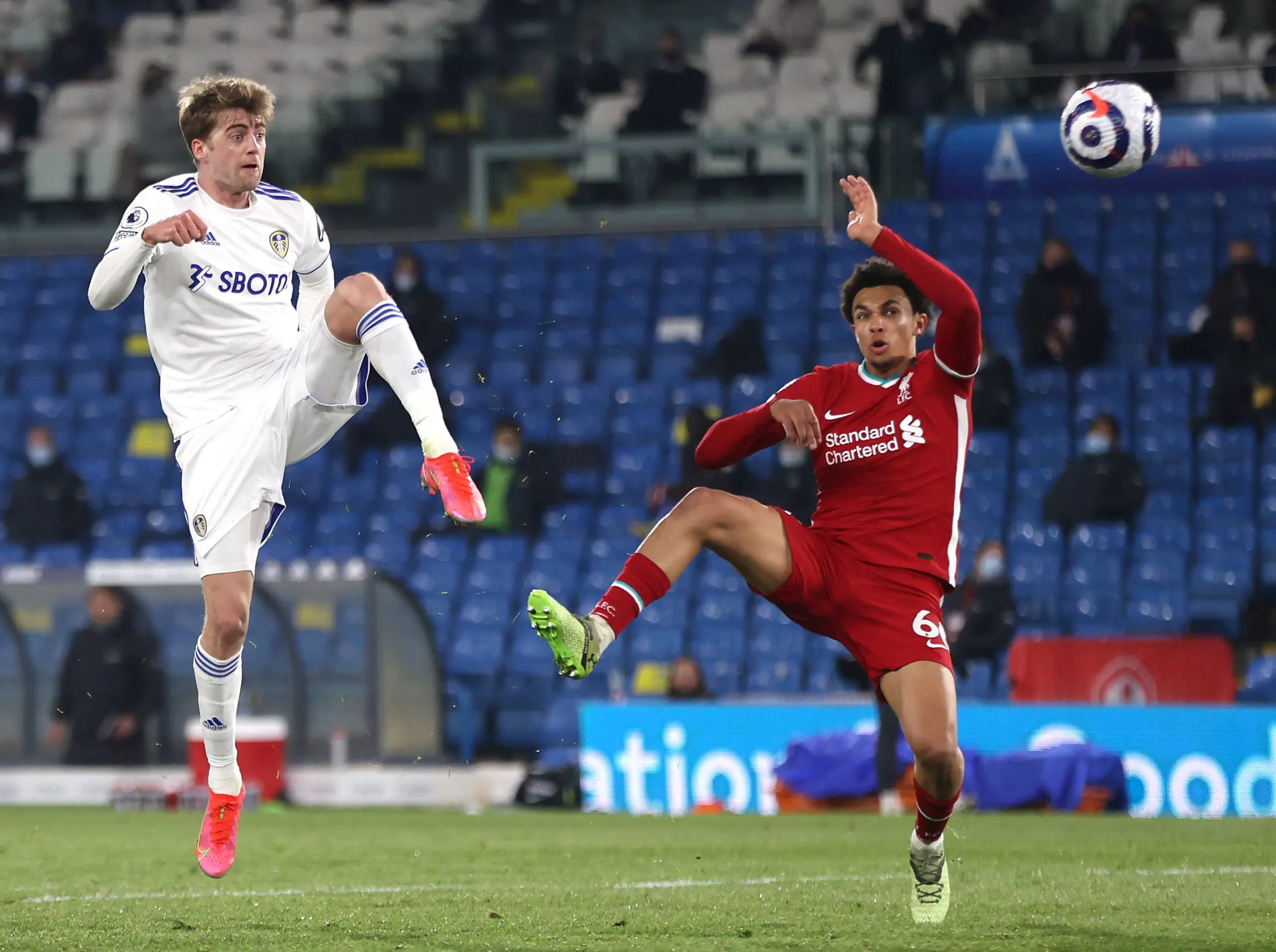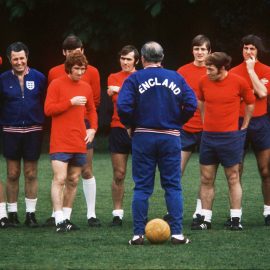Knee-jerk. Look at that phrase, roll it around your tongue, and say it in your head. Knee-jerk. That is the god awful, insidious, depressingly ubiquitous mental response to anything to do with the England football team in this country.
It would even appear the trend has migrated – Franz Beckenbauer’s incongruous comments that England are a ‘kick and rush’ football team and have gone ‘backwards’ have sparked another wave of self denigration that inevitably culminates in the bogus assertion that the Premier League – the most watched league in the world – employs too many foreigners.
As if the England football was a stunningly gifted, slick pass and move football team in the early 90’s before the influx of foreigners – Do you remember Graham Taylor’s team? Carlton Palmer? We didn’t even qualify for the 1994 World Cup. And there is no way the quality of player in the years before the inception of the Premier League was better; they weren’t even on a par with today’s squad.
The essence of a meritocracy is that ability and ability alone is the pre-requisite of whether you play and progress, not what is on your passport. Anything else is a form of discrimination. Any English player with the talent and drive to succeed will be all the better for it if they are testing themselves against the very best players.
Many footballers in the current England squad have played regularly against some of the best teams and the best players in the Champions League, and moreover, been successful; it’s ludicrous to think that the experience has not improved them.
But where are the players coming through the dissatisfied hordes cry. Well, our under-17’s recently defeated Spain to win the European Championships, and our U-21’s got to the final of the European championships last year – surely that bodes well for the future? But this, like most salient facts, is ignored in the maelstrom of blame accompanying any lacklustre senior team display.
England’s result against the USA was not as bad as claimed. Despite Beckenbauers specious claims, (it’s worth pointing out this is not the first time he has said something ludicrous in the press – he labelled Bayern Munich a team who could not play football the year they won the Champions League) England had 58% of the ball and created numerous chances; this against a side who comprehensively beat Spain in the Confederations Cup last year and took a two nil lead against Brazil in the final of the same tournament.
In fact, looking back over the years, you could say it was one of England’s best opening performances in the last 10 or 15 years – the games against Paraguay in Germany and Sweden in Korea were far more turgid.
Are the USA a side England should beat? Yes. But even so, the point to remember here is that, no, England weren’t great against the USA -they can play better, but to lampoon the team as ‘kick and rush’ is not just erroneous but grossly unfair. It completely flies in the face of our World Cup qualifying campaign in which we scored an impressive 34 goals and reached the tournament in some style.
Furthermore, the structure of that team has been disrupted by the injury to Gareth Barry – not only is his style of playing and the way he shields the back four important to the way in which Capello’s side functions, but having a left footer in midfield gives us far more natural balance.
The suggestion that English players don’t have the technique or skill is a rank cliché and far from the truth: It has nothing to do with individual skill set or technique. Nearly all the players are extremely successful in club sides that can retain possession and pass the ball. And there is no one in that England side who doesn’t have the technique to cope at this level.
The issue here is not the individuals, it’s the collective. We are, by and large, a counter attacking side. We have dynamic midfielders and quick wingers and it is the game we are best suited to. We can pass the ball, and yes, it is irritating when our center backs – or more importantly, our goalkeeper – punt the ball forward, but this is an issue of philosophy.
The Spanish or Brazilian styles of playing didn’t materialise overnight – they are the result of years of coaching ingrained in youngsters from an early age and, in the case of Spain, they are benefiting hugely from the fruition of a clearly defined mantra imposed at the Barcelona youth academy many years ago.
One of England’s main problem is more to do with an uncertain identity than the individual talents of players – but England have employed a succession of foreign managers in a bid to effect style changes that can’t possibly occur overnight, especially when international managers get so little time with the players.
But it’s a fallacy anyway, to think we have to play intricate, patterned passing football like Spain, Barcelona, or Arsenal – there are so many cases on the world wide stage of teams packed with superstars of gifted players who don’t always retain possession well. Look at Inter Milan last year under Jose Mourinho, or look at Real Madrid, who, despite the ridiculous amount of world class players on their books were essentially a counter attacking team in contrast to Barcelona and were not set up to manipulate the ball.
The recent pre-eminence of Barcelona and Spain on the World Stage has led to the germination of a peculiar kind of style fascism that the only way to play football is by passing it and passing it and passing it. One of the most amazing and intriguing things about football, and in particular the World Cup, is the uniqueness of style arising from the differences in culture. There is not one way to play the game.
To offer a more instructive contrast with England’s opening performance, Holland, replete with some excellent technical footballers looked woefully disjointed and unable to pass the ball in the first half of their match against Denmark yesterday, but it would be facetious to conclude too much of anything from that other than the balance of their team wasn’t correct. They can still pass the ball and play football.
Italy, traditionally viewed as being more technically efficient than England, were equally awful. But the Italian press have collectively shrugged their shoulders this morning as they are used to their team being slow-starters, instead of launching an inquiry into the state of Italian football. Just because Germany had some good moments against an extremely poor team, the world and his wife are drawing an ill conceived and bogus parallel.
Let’s wait until the end of the tournament before judging England. Hype and hysteria are traditional bedfellows with the English team and therein lies the answer to the riddle of our continued failures – it is not talent or even our style that is our biggest hindrance, but the nation’s psyche; the constant cycle of jubilation and despair. Let us be calm and appreciate our merits as well as trying to improve our flaws, but in the meantime for goodness sake don’t pay any attention to Franz Beckenbauer.
Add Sportslens to your Google News Feed!






